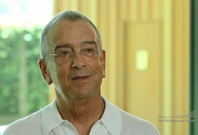 When Richard Atlas, co-founder and trustee of the Atlas Family Foundation, looked towards retirement from Goldman Sachs in the mid-'90s, he set his sights on ramping up his philanthropy and developing a personal philanthropic vision. In conducting his research towards creating that vision, he was struck by the imbalance of power between donor and grantee, and the resulting negative effects—distorted communication, the reluctance of grantees to admit failure, the wasted opportunities for learning (and how the community paid the price), and the lack of investment in learning what is effective and why.
When Richard Atlas, co-founder and trustee of the Atlas Family Foundation, looked towards retirement from Goldman Sachs in the mid-'90s, he set his sights on ramping up his philanthropy and developing a personal philanthropic vision. In conducting his research towards creating that vision, he was struck by the imbalance of power between donor and grantee, and the resulting negative effects—distorted communication, the reluctance of grantees to admit failure, the wasted opportunities for learning (and how the community paid the price), and the lack of investment in learning what is effective and why.The result? One cornerstone of Atlas's philanthropy is to build truly collaborative relationships with grantees. Here are three lessons other philanthropists can learn from his strategy.
Offer capacity-building support to grantees—and don’t presume you know what they need.
Atlas says that his approach in working with grantees is not just to build the program he's funding, but also to offer leadership development, staff development, and board development. And he doesn't assume he knows what his grantees need. Instead, Atlas believes it's important to ask grantees what they think. "The people who are on the ground doing the work know more about what their needs are than we do," he says. "We can ask them questions to make sure that we really understand and they really understand what they’re telling us, but for us to believe that we have the answers that they don’t have, I think is foolhardy and wasteful."
Ask grantees to evaluate your work.
Unlike many philanthropists, Atlas is deeply concerned with his grantees' evaluation of whether he is effective. And so he asks them. But rather than asking a question like "How are we doing?" which could easily elicit an uninformative "Great!" he favors questions such as “What could we be doing to be more effective in helping grow and deepen knowledge in your early childhood program?" and "What can we do to help the agency be more effective?” Such questions yield textured answers. "We get really wonderful feedback from them," he says. "And then by responding to that, in a partnership kind of way, we build the relationship and we impact them in ways that they believe are important, rather than what we believe is important."
To see the complete archive of Richard Atlas videos, see here
Connect grantees to other funders.
Atlas complements his money with his time. One important way: He works to connect grantees with other funders. "You have a fixed amount of dollars, you have a fixed amount of time, and yet you have ever-increasing demands on your assets," he says. He says that in any given year there's a hard boundary around what he's able to give. "If our agencies need more than what we can do, we will then get more involved in helping connect them with other funders," he says. "We will allocate more of the time asset to working with them than we otherwise might, and that time asset will be in helping them develop grant proposals or helping them frame an approach to a funder that they don’t have relationships with." Without a relationship, in Atlas's experience, such grant proposals are virtually doomed.
Richard Atlas's Key Messages for Other Donors


